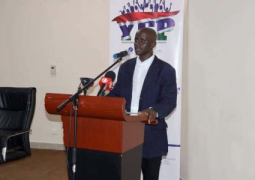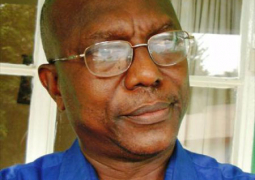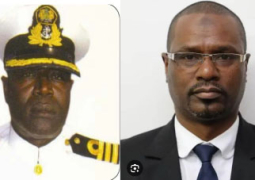
The more serious frustrating aspect of it relates to the on-going preparations at an advanced stage for Copyright Office under the National Centre for Arts and Culture (NCAC) and Collecting Society of The Gambia (CSG) to host and install WIPO Connect (a software meant to have an effective royalty collection system in the country), through support from World Intellectual Property Organisation (WIPO), with emphasis on Gambia acceding to these treaties some of them having direct bearing on internet use of Copyright and Related materials.
This royalty collection software was due for installation in The Gambia since September 2022, but owing delays and circumstances beyond our control, it has been pushed to either December 2022 or the first quarter of 2023.
The following five international Copyright Treaties due for The Gambia’s accession held at the AG Chambers and Ministry of Justice included WIPO Copyright Treaty (WCR) of1996, WIPO Performance and Phonograms Treaty (WPPT) of 1996, Beijing Treaty on Audiovisual Performances of 2013, Marrakesh Treaty to Facilitate Access to Published Works for Persons Who Are Blind, Visually Impaired or otherwise Print Disabled of 2013 and The Rome Convention on Protection of Rights of Performers and Broadcasting Organisations of 1961 and as well as Kampala Protocol on Voluntary Registration of Copyright and Related Rights. They are part of efforts meant toalign Copyright Laws of The Gambia with best practices and standards at regional and international level.
The ratification and accession to the above international Copyright Treaties is part of five projects approved by World Intelectual Property Organisation (WIPO) and African Regional Intellectual Property Organisation (ARIPO) for implementation in The Gambia and as such they are part of National Plan of Actions (NPA, 2023) for the Copyright Office under the National Centre for Arts and Culture and Collecting Society of The Gambia (CSG).
The projects due for implementation in the first quarter January –March 2023 are not limited to the following;
- Establishment of Secretariat for Collecting Society of The Gambia (CSG). The institution responsible for collection and distribution of royalties for the beneficiary stakeholders in the Copyright and Related Rights industries (creative and Cultural Industries).
- The second project is the Installation of WIPO Connect (a software for having an effective royalty collective system in the country) and training of stakeholders on WIPO Connect for its effective operations.As such we have 17 participants registered from The Gambia currently doing online training on WIPO Connect with discussions and arrangements to have a month and date scheduled for arrival of the World Intellectual Property Organisation (WIPO) delegation in The Gambia for installation and training of stakeholders in the Copyright and Related Right Industries (creative and cultural industries).
- The third project is The Gambia’s accession to the cited five international Copyright Treaties as many of them having internet and digital environment related provisions, most of which are not captured in the Copyright Laws of The Gambia.
The frustration is higher since drafting of cabinet paper for cabinet approval of the treaties in the first quarter of 2022 and their subsequent handing over to AG and Minister of Justice by the Minister of Tourism and Culture to date, series of attempts to know their status to no availed. On 6th June 2022, in my capacity as head of Copyright Office, visited and attempted direct conversation with the AG Dawda Jallow on the matter, he referred me to Mr Abdoulie Colley, Registrar General and head of Industrial Property Office under the Ministry of Justice, who renewed similar hopes to have the treaties get cabinet approval. Sometimes late September to October he Colley informed me about cabinet approval of the treaties, but to date he did not share a copy of the said cabinet approval as promised. On 24th January 2023, I visited Solicitor General and Legal Secretary on the same issue, he also referred me to the same Mr Abdoulie Colley and when contacted for updates, he responded in similar hopes to get them for assembly approval with no timeframe mentioned.
This begs the question why it has to take four to three months presenting such an important international treaties for ratification by the National Assembly as they were alleged to have cabinet approval three to four months ago?.
It recalled my role when National Assembly Select Committee in 2021 invited my office, through National Centre for Arts and Culture to advise them on the importance of Gambia’s ratification of the Trademark Protocol otherwise called “The Banjul Protocol on Marks). I told the committee to do so without delay and for the fact that, the very protocol was adopted in The Gambia, hence its name “Banjul Protocol” and I also advise them to link with Industrial Property Office under AG Chambers and Ministry of Justice as the office dealing with such matters as trademarks, patents among others and in less than a month or so African Regional Intellectual Property Organisation (ARIPO) announced Gambia’s membership to the Banjul Protocol on Marks, so why not the same swift reaction to our Copyright Treaties?.
It should be noted that, Copyright Office of The Gambia was established by the 2004 Copyright Act, Cap 95;02, Volume 15, Laws of The Gambia with Ministry of Tourism and Culture having its portfolio and placed under the National Centre for Arts and Culture (NCAC) by section 56 of the cited act for coordination and administration of Copyright and Related rights affairs in the country.
The Office has a legal mandate to monitor and supervise The Gambia’s position in relation to international conventions, which is the case hand, attempting to have The Gambia sign and ratify the five Copyright Treaties held at the AG Chambers for almost one year now. The Office also advise Government on such matters accordingly, Enlighten and inform the public on matter relating to copyright and related rights, maintain an effective data bank on authors and other owners of copyright and related rights and their works and undertake such other tasks relating to copyright as the Minister may assign to it.
Whereas Industrial Property Office under the AG Chambers and Ministry of Justice was established by Industrial Property Act, Laws of The Gambia with protecting trademarks, patents, industrial design among.
There is no force under international law, including treaties, conventions and protocols on enforcement of Intellectual Property (IP) laws in member states. A minimum standard of enforcement of IP laws is required by member states in line with their development needs as per TRIPS Flexibilities, hence IP strategies and policies forms part and parcel of measures and mechanisms meant to enhance the minimum standard enforcement requirement.
Therefore, in as much as the desire and desperation to have these two offices merged, the law and procedures shall be followed as we are not under duress to please anyone within and outside of the country. The Gambia is a sovereign independent state like any other state across the globe, hence our laws must meet our domestic needs and circumstances.
I would have prefer not to cite the unconfirmed reports that, efforts are underway to smuggle the proposed Intellectual Property Bill disguised as Gambia Intellectual Property Office (GIPO) alongside our Copyright Treaties in the National Assembly, despite the two have nothing to do with each other as per their content, objectives and spirit, hence the need to produce our Copyright Treaties and have them presented for ratification to avoid further delay in the implementation of our programs earlier cited in this text.
In as much as the desire to merge the two offices are concerned, we cannot deliberately ignore fundamental basic rules of drafting a Bill(s), requiring information in the Bill coming from stakeholders and no information in this proposed IP BILL came from major stakeholders as National Centre for Arts and Culture (NCAC), Copyright Office, Ministry of Tourism and Culture, Board of NCAC, stakeholders in the cultural and creative industries of The Gambia. Moreover, the sector has 12-13 registered artistic and cultural associations otherwise called “Copyright and Related Right Industries).
There is lack of clarity as to the type of institution conceived under the proposed BIL, whether a public autonomy or silence public institution as any attempts to merge the two public institutions established by an Act of Parliament (Copyright Office and Industrial Property Office) and given their importance in the promotion and protection of intellectual property rights (IPRs), dictates nothing less than putting up a strong public institution like any other important public institution in The Gambia.
There is lack of clarity on source of funding the operational cost of the institution, since there is no information about involvement of the Personnel Management Office (PMO), Ministry of Finance and other stakeholders allocating budget to meet its daily operational cost like any other public institution in the country. We cannot set up an important public institution of that nature with entire reliance on foreign support and aid.
No role and functions of Collecting Society of The Gambia (CSG) is mentioned in that Bill and CSG is the institution responsible for collection and distribution of royalties to copyright owners as per section 66-74 of the 2004 Copyright Act, Laws of The Gambia.
This message is a simple one, please let us have our Copyright Treaties to enable us implement our programs and activities for the benefit and welfare our stakeholders and the country at large. The most important for emphasis sake,is the installation of WIPO Connect (software for having effective royalty collection system in the country), which cannot effectively operate in the absence the international Copyright Treaties held at the AG Chambers with no clarity on their status for assembly ratification and the subsequent Gambia’s membership to them like other countries across the globe.





